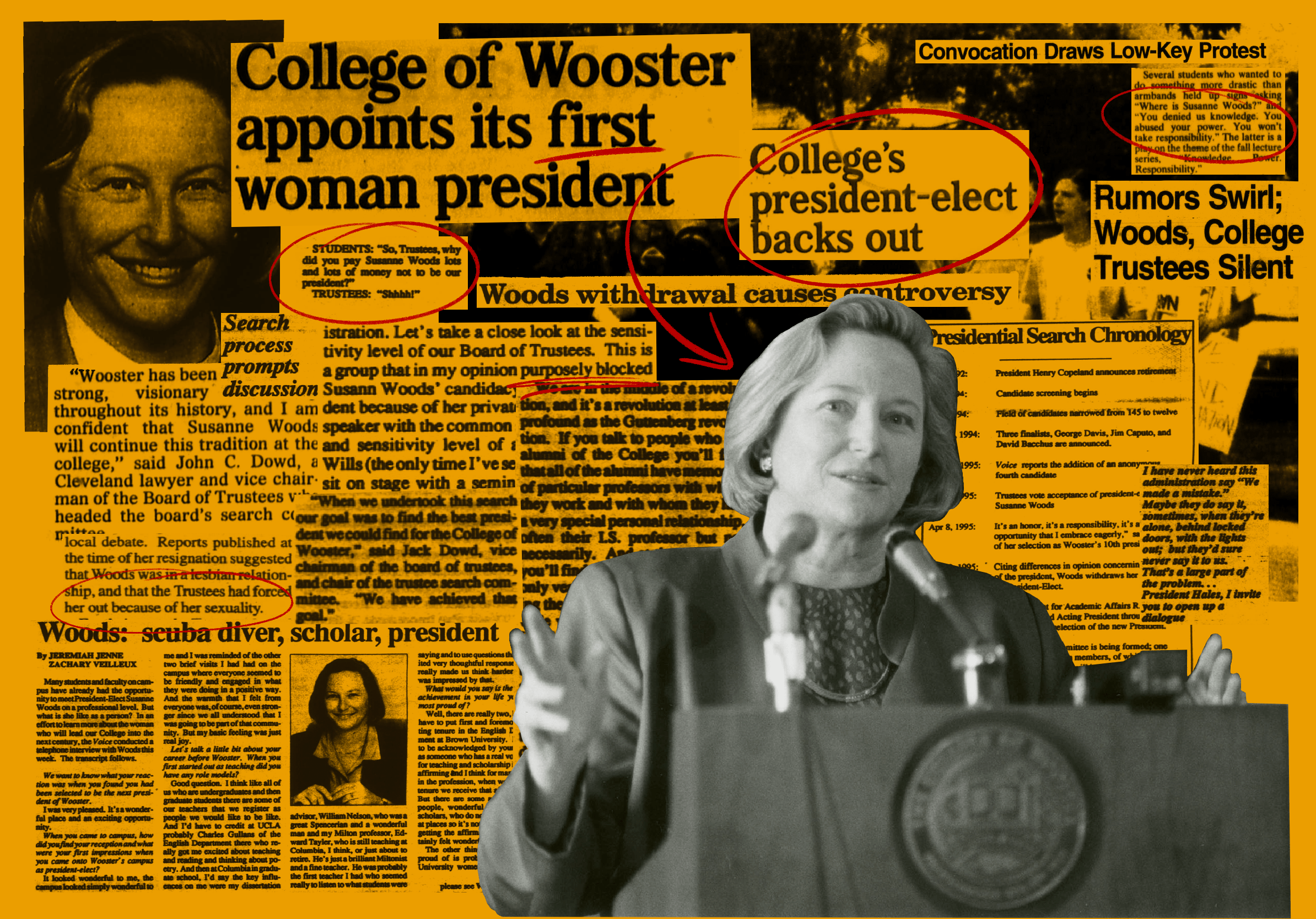Dr. Matthew Mariola led discussions on the major on Dec. 1 and 5 in Lowry Student Center (Photo by Saeed Husain).
Claire Montgomery
Contributing Writer
In an email sent to the College community on Feb. 21, John Rudisill, chair of the philosophy department, provided an update on the Task Force for Freedom of Expression and Inquiry’s work on a statement document on the College’s policies on freedom of expression.
The task force was developed last semester by President Bolton, Dean of Students Scott Brown, Campus Council and Rudisill. In his email, Rudisill described its purpose as being “to develop and articulate … the set of principles and norms governing and protecting speech and expression at The College of Wooster and reflecting the College’s commitment to providing the optimal conditions for the intellectual and ethical growth of its members and for creating, preserving and disseminating knowledge.”
Rudisill said that the task force hoped that a full draft of the statement will be completed by the first week of May to be released at the start of the 2018-19 academic year for comment from the campus community. The statement document will then be submitted to various bodies for approval.
“The task force is needed due to the rise of discussions, articles and arguments surrounding the topic of freedom and expression. As a student, it is a constant challenge to understand what The College of Wooster’s policies are and what freedom of expression constitutes,” Sharah Hutson ’20, a member of the task force, said.
When asked how the campus might be different once the statement document has been issued, Nathan Fein, director of Residence Life, said that he thought it would generate helpful debate.
“One of the key aspects of an institution of higher education is the free exchange of ideas,” Fein said. “Having guiding principles around how we uphold this ideal sets us on a path to deeper discourse.”
“Once the statement document has been issued, I believe that members of this campus will become more aware of what constitutes as freedom of expression and take notice of when violations towards these policies have occurred,” Hutson said.
Professor Rudisill added that the goal of the task force is to think about the implications of protecting speech in terms of the values and commitments of the College as an institution of higher learning with complete equity and inclusiveness.
“I don’t think it’s about changing values or changing our institutional commitments but reminding ourselves of those things and our commitments and the norms that protect and govern the various ways in which we express ourselves across the campus community,” Rudisill said.
“I think that The College of Wooster has a really remarkable, praiseworthy and enviable culture. I think the students today are active and engaged in working to help the College live up to its own ideals to be its best self,” Rudisill said. “I hope the task force contributes to that process of the College being its constructive and thoughtful best self.”


